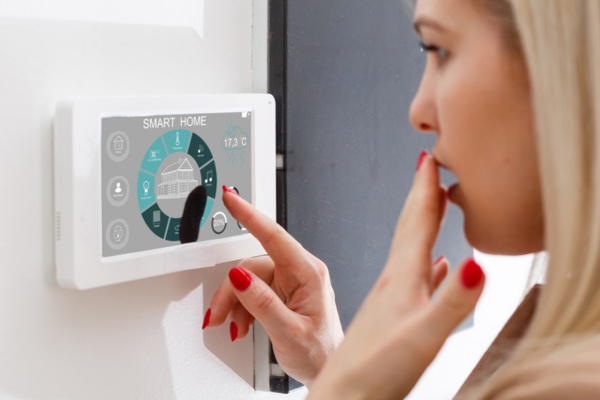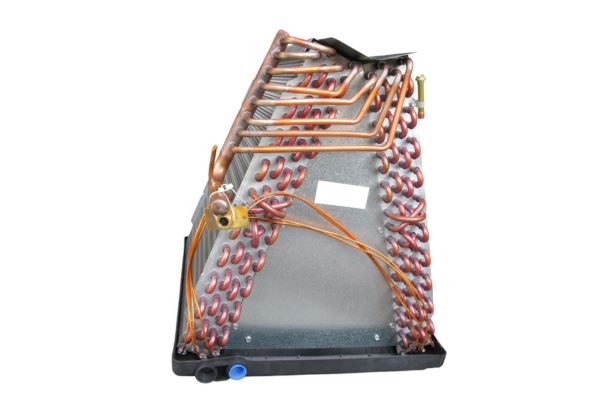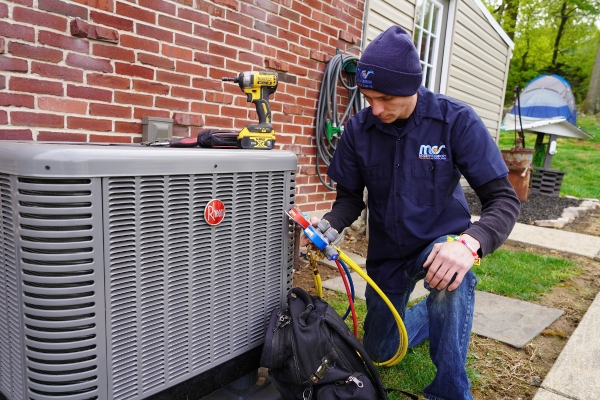Air conditioning systems enhance indoor comfort by reducing heat and managing moisture levels. Achieving the ideal atmosphere involves both aspects; while cooling is widely acknowledged, regulating humidity is just as crucial. Elevated humidity levels can compromise comfort, even in cooler settings. These units are designed to adjust humidity seamlessly and effectively. If your air conditioner not removing humidity, it could indicate an issue. Conducting a preliminary check of the unit yourself might reveal simple problems impacting its functionality. Seeking expert advice like Modern Comfort can also help sort out issues.
Air Conditioners Not Removing Humidity
This article from Modern Comfort explores the challenges air conditioners face in effectively removing humidity from your home.
Understanding Humidity Reduction in Air Conditioners

Air conditioners draw in warm, moist air and cool it as it passes over chilled evaporator coils. This cools the air and lowers its humidity by causing the moisture to condense into water droplets on the coils, which drain away. This function is essential for reducing indoor humidity and boosting comfort.
However, if any component of this system is obstructed or malfunctions, the air conditioner’s ability to manage humidity is compromised. Even if the air temperature decreases, excessive moisture can leave the space feeling muggy and uncomfortable.
Ensure your air conditioner runs smoothly. Contact Modern Comfort for expert maintenance and repair services today!
Advantages of Effective Humidity Removal by Your Air Conditioner
Successfully reducing humidity with your air conditioner offers several advantages, including:
- Increased Comfort: Decreases moisture in the air, making it feel cooler and more pleasant.
- Health Benefits: Lowers the risk of mold, mildew, and dust mites, reducing allergy and asthma triggers.
- Energy Savings: With reduced humidity, your air conditioner can cool more efficiently, which may lead to lower energy costs.
- Protection of Property: Safeguards furniture, electronics, and building materials from moisture-related damage.
- Improved Sleep: Less humidity results in cooler conditions, enhancing sleep quality.
- Less Odor: Helps lessen the musty smells often accompanying high humidity.
Reasons Your Air Conditioning System May Fail to Control Humidity

Excessive indoor humidity isn’t immediately critical but poses substantial long-term hazards. It can damage furniture, wood floors, ceilings, and walls, and it can even ruin books and artwork.
Additionally, high humidity creates a perfect breeding area for mold and mildew, which can lead to unsightly stains and spread harmful spores across your home. This diminishes the visual appeal of your living areas and degrades indoor air quality, making your home uncomfortable and unhealthy. Promptly addressing this issue is crucial.
Below are several possible causes your air conditioner may fail to eliminate humidity properly:
Thermostat Fan Setting

Changing the thermostat fan setting is one effective adjustment that can enhance your air conditioner’s humidity control. If the fan is set to ON, it runs continuously, which can impede the system’s ability to reduce humidity. This non-stop operation prevents moisture from condensing on the evaporator coils and being adequately drained away, causing it to re-evaporate into the air.
Consequently, the expected reduction in humidity is not achieved, and moisture is recirculated throughout your home. To address this, set the fan to AUTO, which ensures it operates only during the cooling cycles, allowing enough time for moisture to be effectively removed from the air, thus improving humidity control.
Clogged Evaporator Coils

Evaporator coils play a critical role in air dehumidification. They cool incoming air, causing moisture to condense into water. When these coils are dirty, their efficiency in moisture condensation significantly decreases. Dirt buildup acts like insulation, reducing the coils’ cooling capacity and subsequently affecting the air conditioner’s ability to lower humidity and temperature.
This highlights the need for routine maintenance. HVAC technicians should perform regularly scheduled professional cleanings of the evaporator coils and the entire air conditioning system, ideally once or twice a year, to maintain your air conditioner’s optimal functionality.
Are you struggling with AC issues? Modern Comfort is here to help. Contact us today for reliable HVAC solutions!
Refrigerant Leak in Air Conditioner
Refrigerant is essential for your air conditioner’s operation, circulating through the coils to absorb and expel indoor heat outdoors. Maintaining proper refrigerant levels is crucial for efficient system performance. However, leaks in the refrigerant system can deplete its levels, reducing the air conditioner’s capacity to cool and dehumidify your home effectively. Indications of a refrigerant leak include:
- The air conditioner emits warm air.
- A hissing noise is coming from the unit.
- Ice builds up on the air conditioner’s lines or the evaporator coil.
Compromised HVAC Ductwork
Ductwork is crucial for distributing air throughout your home, and while it may be out of sight, its condition is paramount. Duct leaks are prevalent and can result in losing more than 30% of the conditioned air, drastically reducing the system’s overall efficiency. This escalates your energy costs and disrupts the uniformity of cooling in various rooms—some areas might stay warm while others cool properly, suggesting possible leak locations.
Furthermore, leaks in the ductwork can elevate indoor humidity levels and lower air quality. Given the difficult access to some sections of ductwork, professional inspection and repair are recommended to ensure optimal performance.
For optimal air conditioner performance, trust Modern Comfort. Contact us for all your maintenance and repair needs.
Oversized Air Conditioning System

An air conditioner that is too large for your space can lead to inefficiencies and discomfort. Although it might cool your home quickly to the desired temperature, its short operation cycles do not allow enough time to adequately remove humidity, resulting in a damp feeling in the air.
Moreover, these frequent short cycles can overwork the system’s components, potentially causing damage over time. To achieve efficient cooling and effective humidity control, choosing an air conditioner that is adequately sized for your home is crucial. A professional HVAC contractor can assist in selecting the appropriate-sized unit, ensuring it operates efficiently and lasts longer.
FAQ: Understanding Your Air Conditioner’s Humidity Control

Here are several frequently asked questions about your air conditioner and its humidity control:
1. Can Air Conditioners Dehumidify A Room Without Cooling It?
Modern air conditioners often have a “dry” mode specifically designed to remove moisture from the air without significantly reducing the room’s temperature. This feature is convenient in humid climates where reducing air moisture is a priority.
2. How Does High Outdoor Humidity Affect My Air Conditioner’s Performance?
High outdoor humidity can make your air conditioner work harder to remove moisture from the indoor air, potentially reducing its efficiency and lifespan. It may also struggle to reach the desired comfort levels, leading to increased energy consumption.
3. Are There Additional Methods To Improve Indoor Humidity Levels Besides Using An Air Conditioner?
Yes, using dehumidifiers, ensuring proper ventilation, fixing leaks, and using exhaust fans in high-moisture spaces like kitchens and bathrooms can further help control indoor humidity levels, complementing your air conditioner’s efforts.
Conclusion
Maintaining the proper levels of temperature and humidity is essential for home comfort. Air conditioners, built to regulate these factors, can encounter several challenges, including improper settings, accumulation of dirt, system leaks, low refrigerant levels, and sizing discrepancies, which can all affect their performance.
Elevated humidity damages your home and poses health risks. To address these issues effectively, consult with HVAC professionals. They can quickly identify and rectify problems, ensuring a comfortable and healthy living environment for you and your family.
Contact Modern Comfort for Professional HVAC Services
For top-tier HVAC services in Central Maryland and Southern and Central Pennsylvania, contact Modern Comfort. Our team of professionally certified technicians is skilled in HVAC maintenance, repairs, installations, and replacements, ensuring competitive prices and exceptional value.
Our maintenance services enhance your comfort and boost system efficiency, reducing energy costs. Whether you need a repair or are considering a new installation, our experts will help you find the right solution within your budget. We guarantee your satisfaction. Discover the Modern Comfort difference! Contact us today to schedule your service and receive a free, no-obligation in-home estimate.
You can click here to contact us now or call us at (410) 429-7252 (MD residents) and (717) 489-3939 (PA residents) to find out more! Click the link to view our service area.

Related Articles:

Recent Articles
